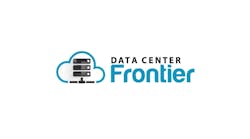In-House Supply Chain Management vs Working with a Supply Chain Management Partner
Effective industrial supply chain management is crucial for Data Center construction projects aiming to optimize operations and maintain profitability. It ensures that critical gear moves efficiently from production to the job site, minimizing costs, maximizing speed to market, and reducing the total cost of ownership. In this highly competitive environment, data center managers have two options: 1) find, hire, train, and manage their construction supply chain in-house or 2) work with an established supply chain management partner like Blueprint Supply Chain.
Each option offers distinct advantages and disadvantages, impacting operational efficiency, cost management, and strategic focus. The decision between in-house and outsourced supply chain management is strategic, influencing day-to-day operations, long-term business growth, and adaptability in a dynamic market landscape. The decision largely hinges upon the size and scale of the Data Center Projects being managed and the individual goals set by the site owner or the end user. Understanding the implications of each approach is essential for data center construction managers looking to improve their supply chain performance and maintain a competitive edge.
Advantages of In-House Supply Chain Management
Control and Customization
Managing an industrial supply chain internally provides a high level of control and customization. Data center project managers maintain complete oversight of their operations, enabling rapid strategic adjustments in response to issues or shifts in project scope and demand for long lead time project equipment and services.
In this scenario, the supply chain team will follow the business processes created internally by the company and provide fewer layers between raw data and decision-makers. In most cases, this will lead to faster decision-making and greater insight into vendor performance.
Additionally, in-house supply chain management can be closely aligned with the company’s brand values and standards, ensuring a consistent customer experience and greater “usability quotient.”
Cost Management
In-house supply chain management offers direct insight into all associated costs, allowing for more precise budgeting and significant near-term savings by eliminating third-party management fees. Having the supply chain team directly under the oversight of the company also allows greater accountability to manage specific budgets and cost milestones, essentially minimizing waste and shortfalls.
Data center owners and project managers can create long-term value and equity by investing in supply chain management infrastructure, which meets immediate operational needs while increasing in value over time. A company with its own logistics department can offer significantly more value than one without. This strategic approach not only enhances financial efficiency but also has the potential to strengthen the company's overall market position.
Integration and Coordination
In-house supply chain management teams can seamlessly collaborate with other key stakeholders under the authority of the project manager or site owner including OEM production plants, warehouse and integration site teams, and heavy-haul providers resulting in more coordinated and efficient operations. This close integration improves alignment through communication, reducing delays and enhancing overall service levels. Additionally, managing the supply chain internally can improve data security by keeping sensitive information within the company, mitigating the risks associated with external data breaches.
Disadvantages of In-House Supply Chain Management
High Initial Investment
Establishing an in-house supply chain management operation requires significant capital investment in infrastructure, such as warehouses, transportation, technology systems, and a skilled workforce. The significant upfront costs can be costly, particularly for small businesses or startups. Additionally, ongoing operational costs for maintenance, training, and system upgrades accumulate quickly. As a result, in-house teams typically have a higher total cost of ownership (TCO) than outsourced teams.
Even if an asset-light model is adopted, utilizing just a team of internal specialists, vendor relationships will need to be developed and the typical growing pains absorbed by the business as the supply chain function takes root in the business.
Limited Expertise and Resources
This can result in significant time and effort spent by in-house teams trying to mitigate delays, raising concerns about the efficiency of resource allocation. Furthermore, hiring a dedicated team for construction supply chain management raises productivity concerns during times when project oversight is less demanding.
This begs the question of how efficiently time and resources are used. Smaller businesses may find it difficult to match the resources and capabilities of established supply chain management partners, potentially limiting their market competitiveness. Therefore, while in-house teams provide direct control over operations, they must navigate these complexities to ensure maximum efficiency and cost-effectiveness throughout their project's lifecycle.
One may also consider the rapidly evolving technological needs of data center projects. Design specifications and equipment can change mid-course, meaning that training and vendor relationships may also need to be reset within the scope of a single construction project. The business would need to absorb all these changes which can add up to significant costs.
Comprehensive Risk Exposure
Managing the industrial supply chain in-house means the data center owner assumes full responsibility for all associated risks, including supply chain disruptions, regulatory compliance issues, and operational challenges. Insurance costs alone can reflect enough risk mitigation investment to discourage a business from leaving supply chain management out of their mix. Navigating these risks can be resource-intensive and potentially jeopardize their data center operations and reputation.
Advantages of a Supply Chain Management Partner
Expertise and Specialization
Supply Chain Management partners bring extensive expertise and specialization to supply chain operations. Focused solely on the optimization of your construction supply chain, they often offer more advanced services compared to in-house teams. For example, BluePrint Supply Chain might manage the delivery and installation of critical backup generators for a new data center. These generators, crucial for maintaining operational continuity, demand precise coordination and handling during installation. BluePrint’s partners employ professionals highly knowledgeable in the latest industry practices, ensuring efficient operations. Additionally, they utilize innovative technology and sophisticated systems to track, report, and manage logistics activities, enhancing accuracy and operational efficiency.
Because a company like BluePrint has resumes of completed projects with the vendors they use, there is an inherent trust that has been built with experience allowing third-party management companies to draw from a larger body of work to determine whether or not a vendor is reliable to deliver the SOW on time and without incident.
Cost Savings
Outsourcing your construction projects to a Supply Chain Management provider can result in significant cost savings. By serving multiple clients, these providers can distribute work to vendors more efficiently, adding substantial value. A third-party management company often spends more with a single transportation vendor than an individual site owner or contractor, allowing them to leverage favorable economies of scale for their clients. This translates into lower costs for warehousing, transportation, and other supply chain services. These savings are passed onto clients, making the process more cost-effective. Additionally, outsourcing eliminates the need for substantial capital investments in warehouses, vehicles, and technology, allowing businesses to allocate financial resources more strategically. For example, during the construction of a new data center, a Supply Chain Management partner can streamline the delivery of essential components like generators or transformers, ensuring that the project remains within budget and on schedule.
Third-party management firms are also capable of adding greater analytical insights into supply chain programs. Through the variety of experiences and projects they have worked on, third-party firms can often identify metrics and determine patterns that can improve efficiency, control costs, and drive continuous improvement within a single project, or an entire enterprise.
Scalability and Flexibility
Supply Chain Management providers offer scalability and flexibility, adjusting their operations to accommodate fluctuations in demand. This adaptability is particularly beneficial for businesses experiencing growth or those with seasonal product cycles, enabling them to manage peak seasons and varying order volumes without committing to long-term investments. Partnering with a Supply Chain Management provider allows companies to focus on core competencies, dedicating more time and resources to other aspects of the business. For instance, a data center project experiencing a sudden increase in demand for additional generators can quickly scale up warehousing space through their supply chain partner.
Risk Management
Supply Chain Management providers specialize in managing risks and overcoming a variety of logistical challenges, including disruptions, regulatory compliance, and transportation issues. By assuming these challenges, they effectively reduce overall risks for data center managers, leading to streamlined operations and fewer disruptions in the supply chain. In instances of unexpected project delays, Supply Chain Management partners expedite solutions and restore project schedules quickly, thereby increasing the efficiency of construction supply chains.
Disadvantages of a Supply Chain Management Partner
Reduced Control
One significant disadvantage of working with a Supply Chain Management partner is the reduction of control. Data center project managers may struggle to maintain consistent service levels and ensure customer satisfaction when operations are outsourced. Prioritization and timetables are ceded to the third-party management firm. Even when there are mutually agreed upon KPIs, the project manager is still at the mercy of the third-party management firm’s reaction time and reporting. There is absolutely an accountability gap that can occur.
Communication breakdowns can exacerbate problems, leading to misunderstandings and operational inefficiencies. These factors highlight the importance of carefully managing relationships and expectations when delegating industrial supply chain management to external partners.
Operational Incongruency
Integrating the systems and processes of a Supply Chain Management provider with a company’s existing infrastructure can be complex and time-consuming. System compatibility issues may require extensive adjustments, causing initial inefficiencies and disruptions to normal operations. This challenge is not limited to technical integration but extends into the compatibility of the standard operating procedures of both organizations.
Something as simple as communication protocol can short-circuit a well-managed process. Companies will need to invest time and effort to align their systems seamlessly with those of the Supply Chain Management partner—assuring training, processes, and communication systems are properly aligned.
The decision whether to establish an in-house supply chain management team or to partner with a specialized provider like Blueprint Supply Chain hinges on the unique circumstances of the data center owner and the project at hand. Factors such as financial resources, strategic priorities, and operational requirements across the project lifecycle play pivotal roles in this determination. In-house supply chain management offers greater control and customization but at a higher cost and resource demand. Conversely, outsourcing to a Supply Chain Management partner, like Blueprint Supply Chain, allows for cost efficiency, scalability, and expert knowledge. However, it may entail relinquishing some control and facing integration complexities. A thorough evaluation of these factors will help data center managers make a well-informed decision that aligns with their long-term goals.

Brant Frederick
Brant Frederick currently serves as the Director of Development at BluePrint Supply Chain, a role he assumed in March 2024. Brant has had over 19 years of experience in sales and operations, particularly in the trench safety industry. He has a proven track record in driving sales growth, enhancing operational efficiency, and improving team performance.






